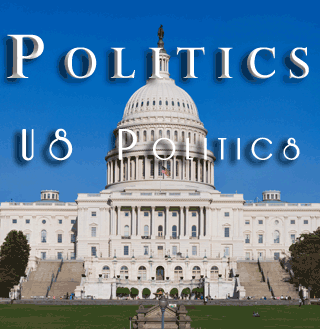The Death of the Stigma of Profanity?
I feel that too many dirty words are floating about in my world, too many bleeps in the daily news. The expletive used by Congresswoman Rashida Tlaib last month caused something of a stir among the media. A few days before, Beto O'Rourke conceded his Senate race to Ted Cruz ending with, "I'm so f-ing proud of you guys!"
Since Watergate, the US media has fed voraciously on scandals, real or imaginary, and cursing politicians were once scandalous. Tlaib did not apologize but defended this usage as speaking the way her Michigan constituents speak.
I recently noticed several Coloradan teenagers using profanity quite casually in the presence of their parents. These parents seem to have adjusted to the fact that their teenage children use vulgar words with their friends with no stigma attached, and the parents wanted their children to feel that comfortable talking to them.
When I left rural North Carolina in the 1960s, if any decent woman would have heard someone utter either the F-word or P-word, they would have left his presence and avoided him ever after. Yet, these very same women voted in hordes to make a person heard saying both these words President of the United States in 2016. The President uses profanity casually in many of his rallies.
What's going on here? Is the stigma attached to profanity waning? Have the American people become so inured to profanity that they are beginning to accept it as part of the general vocabulary? The Guardian almost four years ago even bragged about being the first English-language newspaper to print the F-word in an article that used it freely.
When buying and selling pornography was illegal, it was easier to control the public use of vulgar words since most of it is related to sex. The most popular search engines like Google, Bing, Yahoo and social networks like Reddit offer pornography free of charge. Now that sex is coming out into the open, profanity's reputation is being raised from the dregs of the English vocabulary. The Web makes it easier to not only use vulgar words, but publish and broadcast them without editorial intervention.
So why this changing attitude? Well, the Internet has become an encyclopedia of the world by the world and profanity is part of the world. The impact of editors has been drastically reduced now that anyone can publish anything they want unedited.
This change follows the changes in attitudes toward homosexuality, abortion, marijuana and racial differences. Like these attitudes, the acceptance of profanity causes no physical, moral, or property harm.
Of course, the completion of this change lies in the distant future. But let's speculate on the outcome of removing the taboo on profanity. As a linguist, I have long fought against this trend on my website, alphaDictionary.com. But now that I've given it some thought, I'm preparing to change my attitude.
Restraining ourselves from using taboo vocabulary can be stressful. Living in a society where slipping and uttering one of these words can cost you friendships, jobs, respectability is obviously stressful. At a time when teen suicides and runaways are at an all-time high, reducing emotional pressure even slightly helps.
Without the curse on profanity, the fear of using it inappropriately dissipates. Perhaps it's best for that fear to go the way of the fear of marijuana, homosexuality, abortion and racial differences. We can all relax considerably once we surrender the tensions caused by all these things.
(Sunbury Daily Item, April 8, 2019)




